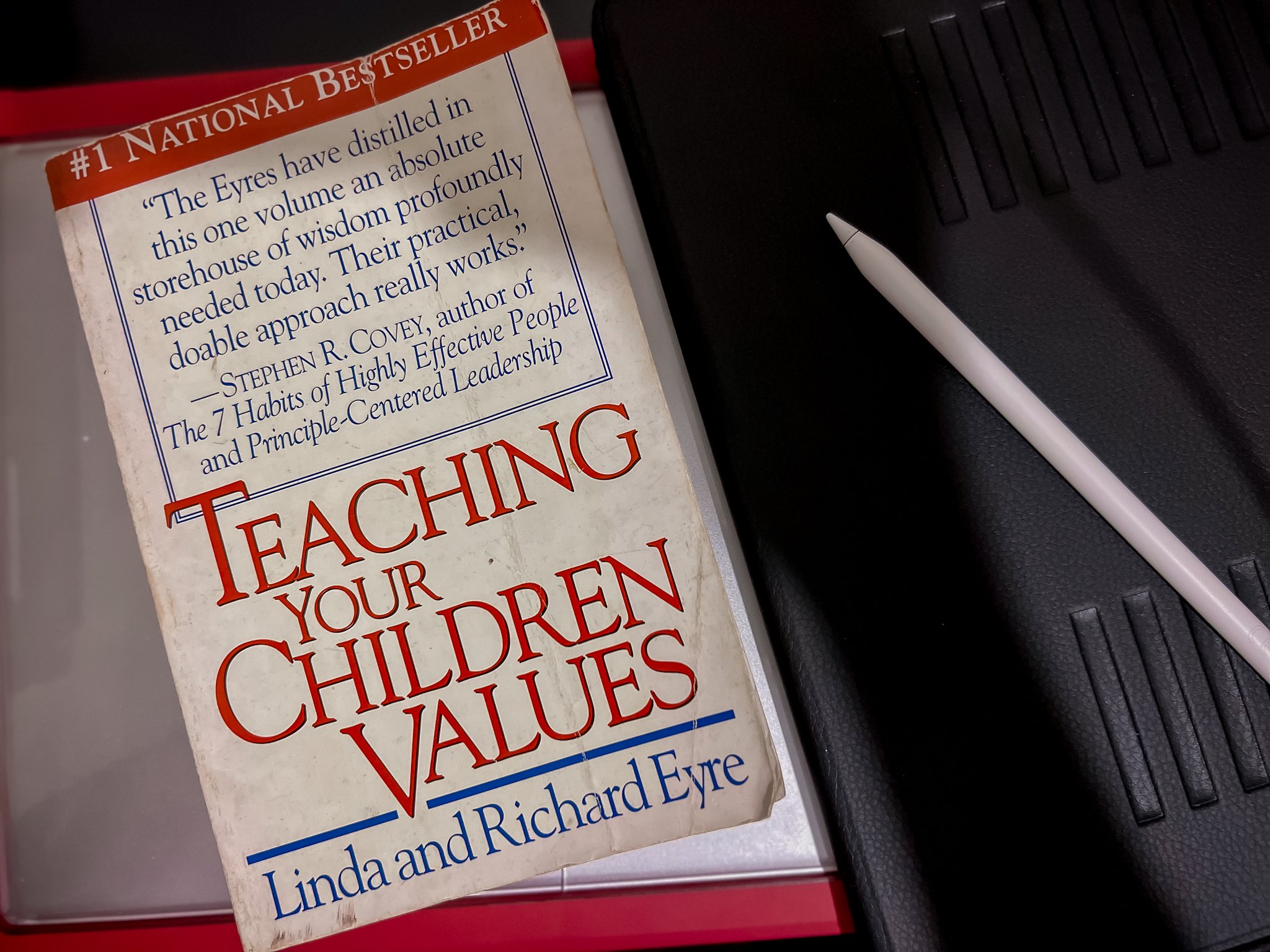Teaching Your Children Values
“One of the greatest gifts you can give your children is a strong sense of personal values. Helping your children develop such values as honesty, trustworthiness, and self-discipline is as important in their education as teaching them to cross the street safely. The values you teach your children are their best protection from the influences of peer pressure and the temptations of consumer culture. With their own values clearly defined, your children can make their own decisions - rather than imitate their friends or the latest fashions.” - Teaching Your Children Values by Linda and Richard Eyre
The main ideas in the book focus on how parents can instil values in their children by
(a) modelling behaviours and beliefs,
(b) creating an environment that reinforces positive values, and
(c) providing opportunities for children to practice these values.
The book advocates for parents to have open and ongoing communication with their children about what values are important to them and why, and to involve children in discussions and decision-making processes related to values.
Additionally, the book encourages parents to teach children to take responsibility for their actions and to make ethical decisions by considering the impact of their choices on themselves and others.
The book promotes a wide range of values that parents can instil in their children. Here are some of the values put forth in the book:
Honesty: Children are encouraged to tell the truth and be honest in their dealings with others.
Responsibility: Children are taught to take responsibility for their actions and to be accountable for the consequences.
Respect: Children are taught to respect themselves, others, and the environment.
Kindness: Children are encouraged to be kind and compassionate to others.
Courage: Children are taught to have courage and to stand up for what they believe in.
Perseverance: Children are encouraged to persist in the face of challenges and to never give up.
Generosity: Children are taught to be generous and to share with others.
Gratitude: Children are encouraged to express gratitude and appreciation for the people and things in their lives.
Forgiveness: Children are taught to forgive others and to seek forgiveness when they have done wrong.
Tolerance: Children are encouraged to be accepting and tolerant of others who may be different from themselves.
Patience: Children are taught to develop self-control, resilience and empathy towards others.
These are just a few of the many values that are discussed in the book. The authors suggest that parents should prioritise the values that are most important to their family and tailor their approach accordingly.
Overall, the book emphasises the importance of teaching children values early in life and providing consistent guidance and reinforcement throughout their development.

